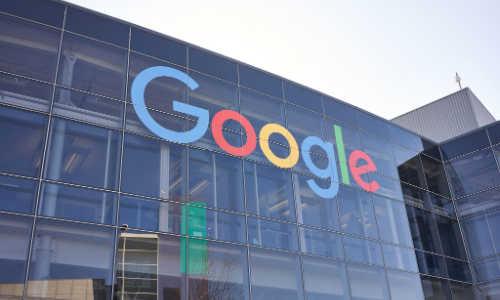In the ever-evolving landscape of digital advertising, one name reigns supreme: Google. With its powerful search engine and widespread reach, the tech giant has become synonymous with online advertising. However, beneath the surface lies a complex web of allegations and controversies surrounding Google’s alleged monopolization of the ad technology market. In this article, we delve into the details of these accusations, exploring the impact of Google’s dominance on the advertising industry and the potential implications for consumers and competitors alike.
Title: The Alleged Monopoly of Google in the Ad Technology Market
The ad technology market has been a lucrative industry, with Google allegedly holding a dominant position that some critics argue is a monopoly. Google’s vast reach and powerful algorithms have made it the go-to platform for advertisers looking to target specific audiences and maximize their marketing efforts. The company’s acquisition of various ad tech firms over the years has further solidified its position in the market.
Critics claim that Google’s monopoly in the ad technology market has stifled competition and innovation, leading to higher prices for advertisers and fewer choices in the market. With limited alternative options available, advertisers may feel pressured to use Google’s services, further entrenching the company’s dominance. As regulators continue to investigate these allegations, the future of the ad technology market remains uncertain.
Introduction: Understanding the Impact of Googles Dominance
Google has long been at the center of controversy over its alleged dominance in the ad technology market. Critics argue that the tech giant has used its vast resources and market power to stifle competition and control the flow of online advertising. This dominance has raised concerns about the impact on smaller companies and the overall health of the digital advertising ecosystem.
One of the main allegations against Google is that it has engaged in anti-competitive practices to maintain its dominant position in the market. This includes reportedly giving preferential treatment to its own ad technology products, making it difficult for competitors to compete on a level playing field. Additionally, Google’s acquisition of various ad tech companies has further solidified its control over the market, leading to accusations of monopolistic behavior.
Investigation into Googles Business Practices and Alleged Antitrust Violations
Google has been under scrutiny for allegedly monopolizing the ad technology market through a variety of anticompetitive practices. One of these practices includes striking exclusive deals with major advertisers and websites to limit competition in the digital advertising space. This has raised concerns about Google’s dominance and control over the online advertising industry, potentially stifling innovation and hindering fair competition.
Additionally, Google’s integration of its ad technology across its various platforms, such as Google Search, YouTube, and Google Display Network, has given the tech giant a significant advantage over its competitors. By leveraging its vast user data and algorithms, Google can offer more targeted and effective advertising solutions, further solidifying its stronghold on the ad tech market. These alleged antitrust violations have prompted investigations into Google’s business practices and calls for increased regulation to ensure a level playing field for all players in the digital advertising ecosystem.
Recommendations for Addressing Googles Alleged Monopoly and Promoting Competition
One way to address Google’s alleged monopoly in the ad technology market is by implementing stricter regulations and antitrust laws. This can help prevent Google from unfairly dominating the market and stifling competition. By promoting a level playing field, other companies can have a chance to compete and innovate within the industry.
Another recommendation is to encourage transparency and accountability within Google’s advertising practices. By requiring Google to disclose more information about their algorithms and data usage, it can help ensure fair competition and prevent any potential abuse of power. Additionally, promoting open standards and interoperability can also help foster competition and innovation in the ad technology market.
In Summary
the allegations against Google for monopolizing the ad technology market raise important questions about competition and fair business practices in the digital age. While Google continues to deny these claims, the impact of such alleged monopolistic behavior on the advertising industry cannot be ignored. It is crucial for regulators to closely monitor and investigate these accusations to ensure a level playing field for all players in the market. Only time will tell how this issue will unfold and what effects it may have on the future of digital advertising. Thank you for reading.
